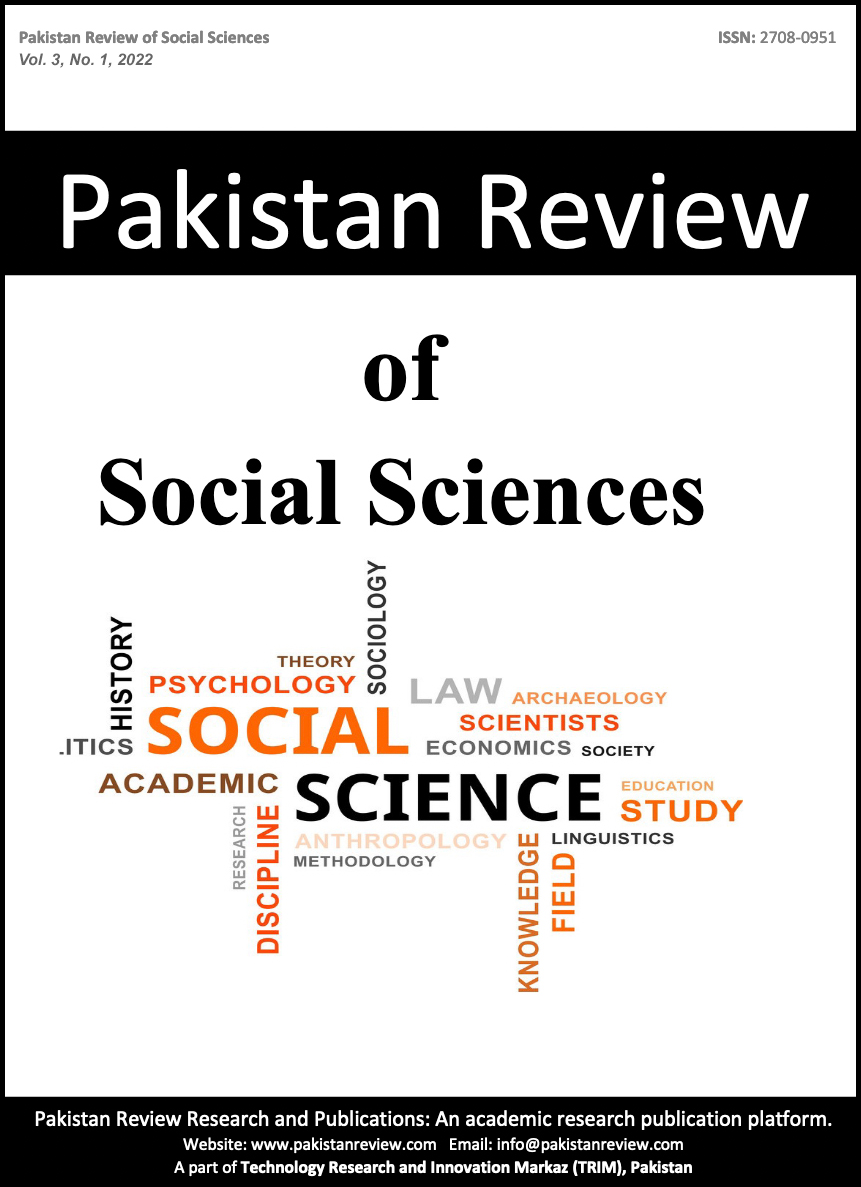An Analysis of the Impact of Terrorism in Afghanistan on Pakistan after Taliban takeover of 2021
Keywords:
Pak-Afghan relations, Taliban govt., Afghanistan govt, ISIS-K, Al-QaedaAbstract
This paper analyzes the impact of terrorism in Afghanistan on Pakistan following the Taliban takeover in 2021. Using a qualitative approach, the study examines the historical context of terrorism in the region and how it has affected Pakistan in the past. The study also examines the current situation in Afghanistan and its potential impact on Pakistan. The findings of the study suggest that the Taliban takeover in Afghanistan has raised concerns about the potential spillover of terrorism into Pakistan. Pakistan has been a victim of terrorism for many years, and the country's security forces have struggled to combat it. The Taliban takeover in Afghanistan has created a security vacuum in the region, and terrorist organizations such as ISIS-K and Al-Qaeda may take advantage of this situation to launch attacks on Pakistan. Furthermore, the study found that the Taliban's return to power has emboldened extremist groups in Pakistan. The country's government and security forces are concerned that these groups may be inspired by the Taliban's success and launch attacks in Pakistan. The study concludes that Pakistan needs to take proactive measures to prevent the spillover of terrorism from Afghanistan. The government needs to strengthen its security forces and intelligence agencies to prevent attacks on its soil. Additionally, Pakistan needs to work closely with the international community to address the root causes of terrorism in the region and promote stability in Afghanistan.
Downloads
Published
Issue
Section
License
Copyright (c) 2023 Syed Shah Hussain Gillani

This work is licensed under a Creative Commons Attribution 4.0 International License.
Submission declaration
Authors retain the copyright to their work and grant the Pakistan Review of Social Sciences (PRSS) the right of first publication under a Creative Commons Attribution 4.0 International (CC BY 4.0) license. This license allows others to share, adapt, and reuse the work for any purpose, including commercial use, as long as appropriate credit is given to the original authors and the journal.
By submitting a manuscript, authors confirm that the work has not been published previously (except as an abstract, lecture, or academic thesis), is not under review elsewhere, and has been approved by all authors and relevant authorities. Once accepted, the article will be openly accessible under the CC BY 4.0 license, ensuring wide dissemination and reuse with proper attribution.






